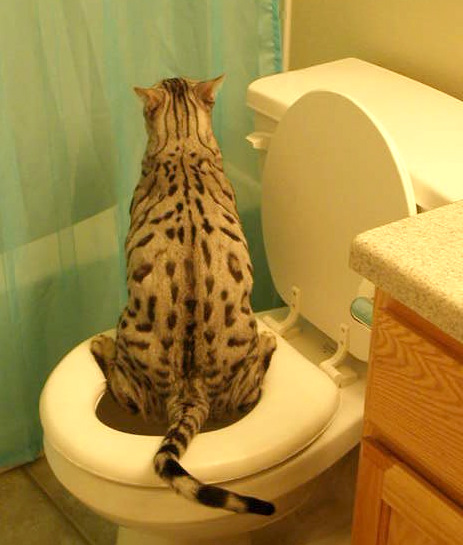Why You Should Never Flush Cat Poop Down Your Toilet - Important Information
Why You Should Never Flush Cat Poop Down Your Toilet - Important Information
Blog Article
The content below pertaining to Don’t flush cat feces down the toilet is particularly stimulating. Check it out yourself and figure out what you think of it.

Intro
As pet cat proprietors, it's essential to be mindful of just how we take care of our feline good friends' waste. While it might appear practical to purge feline poop down the bathroom, this practice can have destructive repercussions for both the atmosphere and human health.
Environmental Impact
Purging cat poop presents damaging microorganisms and parasites right into the supply of water, posturing a significant risk to marine communities. These impurities can adversely affect aquatic life and compromise water quality.
Health and wellness Risks
In addition to environmental problems, purging cat waste can also pose wellness threats to people. Pet cat feces might have Toxoplasma gondii, a bloodsucker that can cause toxoplasmosis-- a possibly severe ailment, specifically for pregnant ladies and people with weakened immune systems.
Alternatives to Flushing
The good news is, there are much safer and much more accountable means to get rid of cat poop. Take into consideration the following choices:
1. Scoop and Dispose in Trash
The most common technique of taking care of feline poop is to scoop it into an eco-friendly bag and toss it in the garbage. Be sure to make use of a specialized clutter scoop and deal with the waste quickly.
2. Usage Biodegradable Litter
Choose eco-friendly feline clutter made from products such as corn or wheat. These clutters are environmentally friendly and can be safely disposed of in the trash.
3. Hide in the Yard
If you have a yard, consider burying pet cat waste in a designated location far from vegetable yards and water sources. Be sure to dig deep enough to prevent contamination of groundwater.
4. Set Up a Pet Waste Disposal System
Purchase a pet dog waste disposal system specifically created for cat waste. These systems utilize enzymes to break down the waste, decreasing odor and environmental impact.
Final thought
Accountable family pet possession expands beyond offering food and sanctuary-- it additionally includes proper waste monitoring. By avoiding purging cat poop down the bathroom and selecting alternative disposal techniques, we can minimize our ecological footprint and protect human wellness.
Why You Should Never Flush Cat Poop Down the Toilet
A rose by any other name might smell as sweet, but not all poop is created equal. Toilets, and our sewage systems, are designed for human excrement, not animal waste. It might seem like it couldn’t hurt to toss cat feces into the loo, but it’s not a good idea to flush cat poop in the toilet.
First and foremost, assuming your cat uses a litter box, any waste is going to have litter on it. And even the smallest amount of litter can wreak havoc on plumbing.
Over time, small amounts build up, filling up your septic system. Most litter sold today is clumping; it is made from a type of clay that hardens when it gets wet. Ever tried to scrape old clumps from the bottom of a litter box? You know just how cement-hard it can get!
Now imagine just a small clump of that stuck in your pipes. A simple de-clogger like Drano isn’t going to cut it. And that means it’s going to cost you big time to fix it.
Parasitic Contamination
Believe it or not, your healthy kitty may be harboring a nasty parasite. Only cats excrete Toxoplasma in their feces. Yet it rarely causes serious health issues in the cats that are infected. Most people will be fine too if infected. Only pregnant women and people with compromised immune systems are at risk. (If you’ve ever heard how women who are expecting are excused from litter cleaning duty, Toxoplasma is why.)
But other animals may have a problem if infected with the parasite. And human water treatment systems aren’t designed to handle it. As a result, the systems don’t remove the parasite before discharging wastewater into local waterways. Fish, shellfish, and other marine life — otters in particular — are susceptible to toxoplasma. If exposed, most will end up with brain damage and many will die.
Depending on the species of fish, they may end up on someone’s fish hook and, ultimately on someone’s dinner plate. If that someone has a chronic illness, they’re at risk.
Skip the Toilet Training
We know there are folks out there who like to toilet train their cats. And we give them props, it takes a lot of work. But thanks to the toxoplasma, it’s not a good idea.

As a devoted person who reads about How to Dispose of Cat Poop and Litter Without Plastic Bags, I thought sharing that information was really useful. Sharing is nice. You won't know, you may be doing someone a favor. Bless you for your time. Please pay a visit to our site back soon.
Free Quote Report this page